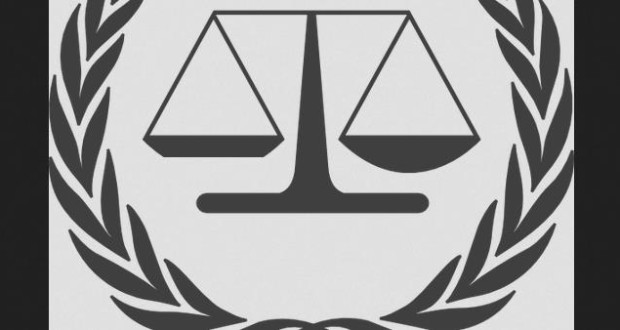October 15th, 2015
By Leonard Lewis – Associate Research Assistant
Under the principle of universal jurisdiction, a national court may prosecute individuals for any serious crime under international law, for example, genocide, war crimes, and crimes against humanity. The principle reflects the idea that every country has an interest in and responsibility to bring to justice perpetrators of the most abhorrent crimes – no matter where those crimes were committed, and regardless of the perpetrator’s nationality. The UN’s doctrinal rationale for universal jurisdiction was that “certain crimes were so serious that they affected the whole international community, or…were harmful to international interests,” and as such their suppression is a joint concern of the international community.[1] However, instead of being a powerful tool that helps states to ensure international justice, actual state practice of the principle can arguably lead one to surmise that the original ideal of universal jurisdiction has been distorted by international politics. States have, in fact, moved towards a more tempered version of universal jurisdiction – conditional universal jurisdiction. This change in attitude is perhaps best demonstrated through examining the Spanish approach.
The Ideal
Absolute universal jurisdiction is exercised solely on the nature of the crime. It is not dependent on where the crime was committed, or on the nationality of the accused, or on the accused being on the territory of the forum state, or any other connection to the forum state. Any state has the authority unilaterally to pursue an action against an individual, regardless of the individual’s nationality. In essence, universal jurisdiction effectively empowers domestic courts to enforce international law.
A seminal example of the use of universal jurisdiction is the trial of Adolf Eichmann, a high-ranking Nazi officer, in Israeli courts. Eichmann had fled from Austria to Argentina after the Second World War. In May 1960, Israeli Security Service agents seized him in Argentina and took him to Jerusalem for trial in an Israeli court. Eichmann maintained that Israel lacked jurisdiction over the crimes because there was no nexus between the victims and Israel, since Israel did not exist at the time of the crimes. However, the Israeli Court rejected this argument and ruled that its jurisdiction was based on the universal nature of the crimes. The court stated that.
‘The abhorrent crimes defined under this Law are not crimes under Israeli law alone. These crimes, which struck at the whole of mankind and shocked the conscience of nations, are grave offences against the law of nations itself… The jurisdictions to try crimes under international law is universal.’[2]
More recent examples of universal jurisdiction include the conviction and life sentence for former Rwandan pastor Francois Bazaramba in 2010 in a Finnish court on charges relating to his involvement in the 1994 Rwandan genocide. Bazaramba’s case was the first time a genocide case had been heard in Finland. The case was heard under the principle of universal jurisdiction after the Finnish government denied a Rwandan extradition request in 2009 on the grounds that Rwandan authorities would be unable to ensure a fair trial.[3]
The Retreat from Absolute Universal Jurisdiction
Universal jurisdiction in its most literal form should have created a sense of hope that ‘those responsible for committing atrocities would be brought to justice, ensuring that accountability would trump impunity’.[4] However, there is increasing evidence suggesting that states are reluctant to exercise absolute universal jurisdiction. Instead, an increasing number of states are implementing measures designed to restrict its use. Despite the fact that universal jurisdiction now applies to an expanding range of serious international crimes, there is little evidence which demonstrates its use amongst national courts[5]. According to a survey by Amnesty International, as of 1 September 2012, a total of 163 states (approximately 84.46% of all UN member states) can exercise universal jurisdiction over one or more crimes under international law, either as such crimes or as ordinary crimes under national law. However, only 19 countries had instituted proceedings based on universal jurisdiction since the Second World War.[6]
States are now moving away from absolute universal jurisdiction towards a more limited version – conditional universal jurisdiction – that requires a stronger link between the alleged crime and the forum state. The widespread implementation of conditional universal jurisdiction is the result of a realisation amongst states of the dangers of judiciaries overstepping boundaries, as well as borders, and trying to prosecute crimes committed on foreign territories by foreign nationals, and the implications of this on achieving international justice.
Spain is arguably the archetypal example of exercising aggressive form of universal jurisdiction. For the offences that elicit the use of universal jurisdiction, Spanish criminal procedure allowed for defendants to be charged regardless of their nationality or that of the victims.[7] A defendant did not need to be in Spain for a court to pursue a case against them, although they had to be present for the actual trial. Under the principle, Spanish judges issued an arrest warrant for former Chilean dictator Augusto Pinochet; ordered investigations of alleged crimes against humanity committed in the 2002 Israeli attack in Gaza; and also directed prosecutions against six former U.S. government officials for their involvement in alleged torture at Guantanamo Bay. However, these actions have had political consequences that have resulted in the Spanish government tempering its use of the principle.
Spain’s Israeli investigation in 2009 sparked outrage in Israel and elsewhere, and it is perhaps not surprising that the Spanish government subsequently passed a resolution limiting the country’s exercise of universal jurisdiction. Then former Israeli Foreign Minister, Tzipi Livni, welcomed the change in legislation, stating that it would ‘prevent the abuse of the Spanish legal system.’[8] The resolution limited the jurisdiction of Spanish courts to cases in which the alleged perpetrators were in Spain, the victims were of Spanish nationality, or where there was a relevant and binding link to Spain. The law also limited Spanish courts from utilising universal jurisdiction if the case was being investigated or prosecuted by a country with jurisdiction or by an international tribunal.
History then repeated itself in 2014, when the Spanish parliament approved a bill that further limited the use of universal jurisdiction. This came months after an indictment issued by a Spanish High Court judge in October 2013 against former Chinese president Hu Jintao over the alleged genocide against Tibetans. Indeed, ‘the government announced plans for the universal jurisdiction reform after China expressed disapproval of the investigation and pressured the Spanish government to stop the prosecution’[9]. Spanish courts are now only able to prosecute crimes against humanity that have been committed abroad if the suspect is a Spanish citizen, a foreigner residing in Spain or a foreigner whose extradition has been denied by Spain.[10] The bill also diminishes the powers of Spanish courts to pursue cases of genocide and other crimes against humanity committed abroad, and also includes a clause to halt current investigations, which includes the arrest warrants issued for several former Chinese leaders for their involvement in the alleged genocide in Tibet, which was the initial cause of the political unrest.[11]
Human rights groups criticized Spain’s further retreat from absolute universal jurisdiction. Human Rights Watch and other rights groups issued a joint statement opposing the reform, stating that the bill would “close the doors of Spanish courts to victims of grave human rights violations who are unlikely otherwise to be able to obtain justice, particularly within their own jurisdictions.”[12]
However, it can be argued that this international shift from absolute universal jurisdiction to conditional universal jurisdiction is, arguably, not in itself a cause for great concern. As the figures show, absolute universal jurisdiction has rarely been used to achieve international justice, for reasons such as the ramifications on relations between states, and the implications of universal jurisdiction on state sovereignty.
The success of conditional universal jurisdiction is still to be determined. If states are more receptive to this altered version of universal jurisdiction, and it is used more frequently than its predecessor to achieve international justice, it could then argued be that the principle has undergone more of a process of evolution than extinction. However, whichever approach states choose to employ, it is important that the use of universal jurisdiction itself is not too determined by international relations, for this could ultimately have the effect of undermining international justice, which goes against the very idea of the principle. One only needs to look at the Spanish example for evidence of the dangers of politicising universal jurisdiction.
[1] International Criminals: Extradite or Prosecute?, Chatham House, July 2015 (https://www.chathamhouse.org/sites/files/chathamhouse/public/Research/International%20Law/0713bp_prosecute.pdf) accessed on 1 September 2015
[2] Attorney-General of Israel v Eichmann, 36 ILR 277 (Israel Supreme Court 1962).
[3] Finland court hears Rwandan genocide appeal, JURIST, 22 August 2011 (http://jurist.org/paperchase/2011/08/finland-court-hears-rwandan-genocide-appeal.php) accessed on 7 September 2015
[4] Is the Light of International Criminal Justice Fading?, The World Financial Review, 20 March 2015 (http://www.worldfinancialreview.com/?p=163) accessed on 7 September 2015
[5] Ibid
[6] Ibid
[7] Article 23.4 of the Ley Organica del Poder Judicial (Law on the Judiciary) (LOPJ)
[8] Spanish FM: We’ll Act to Prevent War Crimes Probes Against Israel, Haaretz, 1 January 2009 (http://www.haaretz.com/news/spanish-fm-we-ll-act-to-prevent-war-crimes-probes-against-israel-1.267048) accessed on 26 September 2015
[9] Spain Parliament approves proposal to curb universal jurisdiction powers, JURIST, 12 February 2014 (http://jurist.org/paperchase/2014/02/spain-parliament-approves-proposal-to-curb-universal-jurisdiction-powers.php) accessed on 31 August 2015
[10] Ibid
[11] Ibid
[12] Spanish Lawmakers Should Reject Proposal Aimed at Closing the Door on Justice for the Most Serious Crimes, Human Rights Watch, 10 February 2014 (https://www.hrw.org/news/2014/02/10/spanish-lawmakers-should-reject-proposal-aimed-closing-door-justice-most-serious) accessed on 7 September 2014
 Human Security Centre Human Rights and International Security Research
Human Security Centre Human Rights and International Security Research




